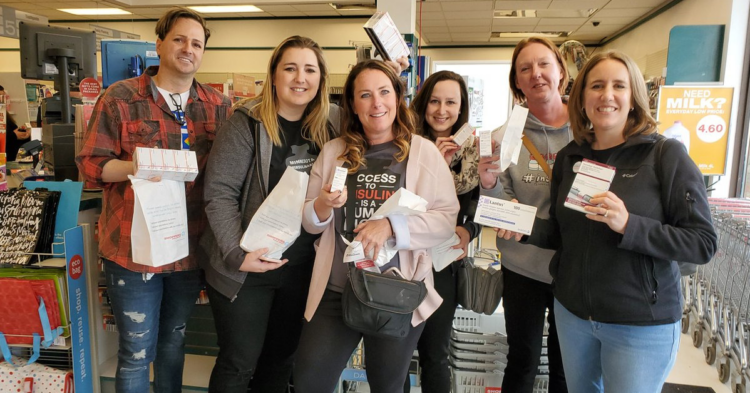Whether you’re for or against America adopting some sort of universal health care, we can all probably agree that the cost of life-saving medications is currently bonkers.
A recent study from the American Cancer Society found that 137 million Americans suffered financial hardship in 2015/2017 due to medical costs.
That’s more than 40% of the country’s population.
Due to those hardships, people may put off important health issues until they become far more serious.
But what if “putting off” means death?
For the approximately 1.25 million Americans with Type 1 Diabetes, not having insulin is a death sentence.

A recently published study from the Heath Care Costs Institute found that the cost of insulin jumped 97% in just four years, and that trend has continued in the last three years.
As costs balloon and wages remain stagnant, Americans struggling to afford insulin are making hard choices.

People have died due to rationing their insulin, trying to make it last until the next pay check.
But Americans living closer to the Canadian border have another option: buy from Canada.
Besides universal health care, Canada also has the Patented Medicine Prices Review Board, which regulates the maximum prices drug companies can charge.
For example, the brand NovoLog costs $320 per vial in the US. Its Canadian equivalent, NovoRapid, costs only $30. That’s more than ten times less.
Additionally, Canada does not require a prescription for insulin, meaning that anyone can just walk up to the counter and buy some.
So the only possible limit for Americans is in bringing it back across the border. US Border Patrol allows for a 90 day supply of prescription medication to be transported as long as it’s in its original packaging.
However, there’s never been a known instance of people being stopped for bringing too much insulin back with them.
So that’s why Americans are traveling together in what they’ve dubbed the Caravan to Canada.
These caravans are driving hours north to visit Canadian pharmacies and purchase three-month supplies of the life-saving medicine that they or their children require.
In three months, they’ll do it all again.
As they traveled, more and more vehicles joined the caravan.
Canadian pharmacists in border cities are used to seeing the odd American come up to their counter, but there is some concern that a growing number of caravans could cause an insulin shortage in those communities.
So far, things seem okay.
Dr. Seema Nagpal, who is the vice-president of science and policy with Diabetes Canada, told the CBC that they are keeping watch for potential shortfalls.
“We try to keep our ear to the ground and hear as early as we can if that is becoming a problem, but we just haven’t heard that yet,” she said.
Meanwhile, caravaner Quinn Nystrom hopes that this whole thing embarrasses the US into doing something about prices.
She drove five hours to get her insulin.
“They want to say what a sophisticated country they are, how advanced they are, how they’re one of the wealthiest countries in the world, and to me they’re a national embarrassment and they are not taking care of their citizens.”

















































